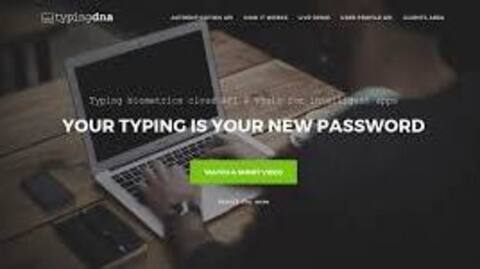Bye-bye 2FA, this start-up verifies user-identity based on your typing
What's the story
US-based start-up TypingDNA has come up with a unique solution to verify user identity online based on how you type. With this, users can simply enter their name and password into a window and allow TypingDNA to analyze their typing to confirm if it's really them before providing them with further access. The company is a part of start-up accelerator Techstars NYC.
Details
The typing-based solution is an alternative to two-factor authentication
The start-up is pitching the typing-based solution as an alternative to two-factor authentication. Two-factor authentication is touted as a secure way to verify user identity since it sends unique codes to a different device to ensure someone else isn't logged in with your password. However, TypingDNA's CEO and co-founder Raul Popa said, "Its bad user experience. Nobody wants to use a different device."
Information
TypingDNA keeps track of your unique typing style
TypingDNA analyzes two aspects of typing. These include the time it takes you to reach a key and the duration for which you keep it pressed. According to the company, these metrics are unique and users can test it out themselves on TypingDNA's website.
The Other Side
TypingDNA's false acceptance rate is 0.1%
Popa said that TypingDNA can also adjust the strictness of the system, minimizing the false acceptance rate to as low as 0.1%. The flipside of that is a user might get rejected if they're typing in an unusual position, or if they're typing slower or faster than usual for some other reason. In such a case, the authenticator will ask them to try again.
Product
TypingDNA has launched a free Chrome extension
To get people to start using its service, TypingDNA has launched a free Chrome extension that works on a wide range of websites including Amazon Web Services, Coinbase, and Gmail. Since it's an alternative to two-factor authentication, instead of going to a separate device, the unique codes will be sent to the TypingDNA extension and revealed once your identity has been verified through typing.
